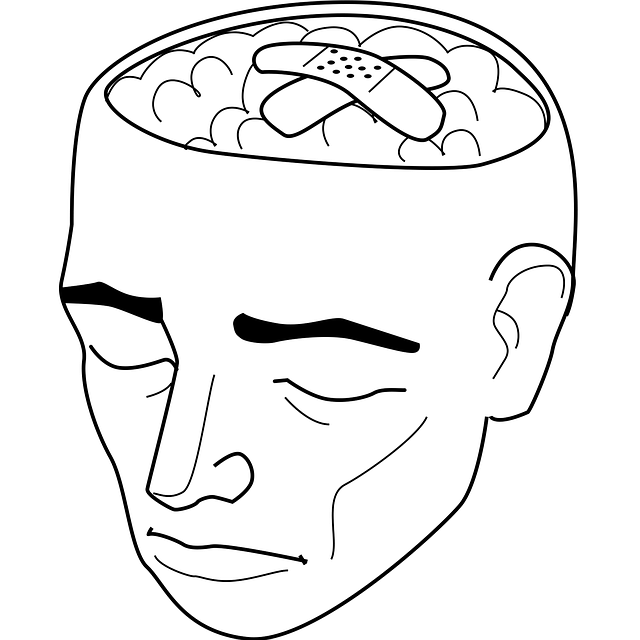Louisville Mandarin Chinese Speaking Therapy is a groundbreaking initiative addressing the unique mental health needs of Louisville's diverse communities, especially its Mandarin-speaking population. By providing therapy in native Mandarin and focusing on long-term well-being through culturally sensitive counseling, self-awareness exercises, and stress management strategies, this program breaks down language barriers and promotes open dialogue. Through community outreach, workshops, and collaborations with local organizations, they enhance mental health awareness, encourage help-seeking, and foster a supportive environment where no one struggles alone.
Mental health advocacy initiatives are vital in creating supportive communities and improving access to care. This article explores diverse strategies, from understanding the core principles of mental health advocacy to examining case studies like Louisville Mandarin Chinese Speaking Therapy, which addresses cultural gaps. We delve into community engagement, policy changes, and their collective impact on fostering resilience and well-being. By highlighting these efforts, we aim to inspire further action and advocate for better mental health support.
- Understanding Mental Health Advocacy: A Necessary Conversation
- Louisville Mandarin Chinese Speaking Therapy: Bridging Cultural Gaps in Mental Health Support
- Community Engagement and Awareness: Building a Network of Support
- Policy Changes and Their Impact: Advocating for Better Access to Care
Understanding Mental Health Advocacy: A Necessary Conversation

Mental health advocacy is a crucial conversation that brings awareness and promotes support for individuals facing mental health challenges. It involves raising voices to challenge stigma, dispel misconceptions, and ensure access to quality care. In cities like Louisville, where diverse communities thrive, including a vibrant Mandarin Chinese-speaking population, specialized therapy services play a vital role. Louisville Mandarin Chinese Speaking Therapy offers a unique approach by providing support in the native language, fostering self-awareness exercises, and facilitating effective communication for those who may face barriers in traditional settings.
This advocacy initiative not only addresses the immediate need for mental health support but also focuses on long-term well-being. By incorporating strategies for stress management and self-esteem improvement, they empower individuals to navigate life’s challenges. Such efforts are essential in creating an inclusive environment where everyone can access the care they deserve, ensuring that no one struggles alone.
Louisville Mandarin Chinese Speaking Therapy: Bridging Cultural Gaps in Mental Health Support

Louisville Mandarin Chinese Speaking Therapy is a pioneering initiative that aims to bridge the cultural gap in mental health support. In many communities, language barriers can make it challenging for individuals from diverse ethnic backgrounds to access adequate care. This therapy program offers a unique solution by providing counseling and treatment services specifically tailored to meet the needs of the growing Mandarin-speaking population in Louisville.
By offering a safe and culturally sensitive space, the initiative ensures that patients feel understood and supported. The therapists, who are proficient in both Mandarin Chinese and English, deliver crisis intervention guidance and promote positive thinking while respecting traditional beliefs and values. Furthermore, their community outreach program implementation has been instrumental in raising awareness about mental health issues within these communities, fostering open conversations, and encouraging individuals to seek help when needed.
Community Engagement and Awareness: Building a Network of Support

In Louisville, the Mandarin Chinese Speaking Therapy initiative has been instrumental in fostering community engagement and awareness regarding mental health. By providing therapy services specifically tailored to meet the needs of the local Mandarin-speaking population, this program breaks down cultural barriers and ensures that a diverse segment of the community has access to much-needed support. Through targeted outreach programs, workshops, and educational events, they raise consciousness about mental health issues within the Chinese-speaking community, encouraging open dialogue and reducing stigma.
Community engagement goes beyond awareness; it involves building a network of support. The initiative collaborates with local schools, community centers, and religious organizations to integrate stress reduction methods, crisis intervention guidance, and self-care practices into their programs. This collaborative approach not only strengthens the mental health safety net but also fosters a culture where seeking help is normalized. By working together, these entities create a supportive ecosystem that extends beyond language barriers, ensuring that everyone feels seen, heard, and cared for in navigating life’s challenges.
Policy Changes and Their Impact: Advocating for Better Access to Care

Mental health advocacy initiatives play a pivotal role in shaping public policy and improving access to care. One significant aspect is pushing for policy changes that ensure better accessibility to mental health services, especially for underserved communities. For instance, advocates have been working towards integrating more therapists who speak languages like Louisville Mandarin Chinese to cater to the diverse needs of the population. This initiative addresses cultural barriers, making care more inclusive and effective.
Additionally, advocacy efforts focus on updating risk assessment guidelines for mental health professionals, emphasizing the importance of regular training in empathy-building strategies. By promoting these practices, we can foster a more supportive and nuanced approach to mental healthcare, ultimately enhancing patient outcomes and satisfaction. Such policy interventions are crucial steps towards destigmatizing mental health issues and ensuring that everyone has the opportunity to thrive.
Mental health advocacy initiatives, as demonstrated by innovative programs like Louisville Mandarin Chinese Speaking Therapy, community engagement strategies, and policy reforms, are pivotal in fostering inclusive support systems. By addressing cultural gaps, building networks, and advocating for better access to care, we can ensure that everyone, regardless of background or language, receives the mental health support they deserve. These efforts collectively contribute to a healthier and more resilient society.









